Simmons College of Kentucky is a private historically black college in Louisville, Kentucky. Founded in 1879, it is the nation's 107th HBCU and is accredited by the Association for Biblical Higher Education.

William J. Simmons was an American Baptist pastor, educator, author, and activist. He was formerly enslaved person, who became the second president of Simmons College of Kentucky (1880–1890), for whom the school was later named.
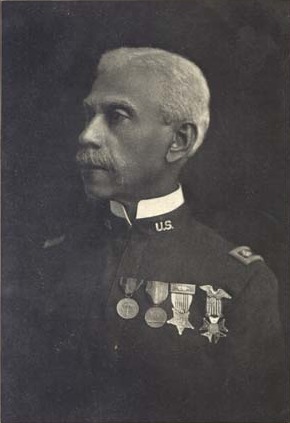
Allen Allensworth was an American chaplain, colonel, city founder, and theologian. Born into slavery in Kentucky, he escaped during the American Civil War by joining the 44th Illinois Volunteers as a Union soldier. After being ordained as a Baptist minister by the Fifth Street Baptist Church, April 9, 1871, he worked as a teacher, led several churches, and was appointed as a chaplain in the United States Army. In 1886, he gained appointment as a military chaplain to a unit of Buffalo Soldiers in the West, becoming the first African American to reach the rank of lieutenant colonel in the United States Army. He served in the Army for 20 years, retiring in 1906.
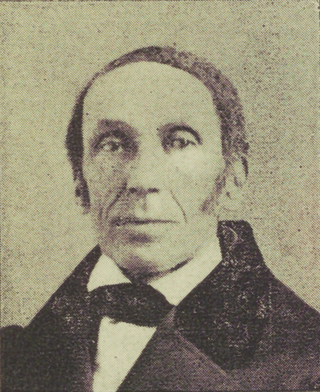
Henry Adams was a Baptist pastor and leader in the Black community in 19th-century Kentucky. He was born to free parents in Franklin County, Georgia, and became ordained at age 23. He preached throughout the Deep South before moving to Louisville, Kentucky, in 1829, where he became minister to Black members of First Baptist Church.

George Washington Dupee was a former slave who became a Baptist leader in Kentucky, United States.

Leonard Andrew Grimes was an African-American abolitionist and pastor. He served as a conductor of the Underground Railroad, including his efforts to free fugitive slave Anthony Burns captured in accordance with the Fugitive Slave Act of 1850. After the Civil War began, Grimes petitioned for African-American enlistment. He then recruited soldiers for the 54th Regiment Massachusetts Volunteer Infantry.

Preston Taylor was an African-American businessman, minister and philanthropist. In the early 20th century he was considered one of the most influential leaders of Nashville, Tennessee's black community. He created Greenwood Cemetery, which is the second oldest African-American cemetery in Nashville, and Greenwood Park, which was the first park for African-American communities in Nashville. A later public housing project was named in his honor.

Theodore Doughty Miller was a Baptist preacher from Philadelphia, Pennsylvania in the late 19th century. Before the US Civil War (1861–1865), he was a part of abolitionist society in Philadelphia, and after the war he played a leading role in the Baptist Church. In 1881 he was called "the best colored preacher ever located in Philadelphia".

Richard DeBaptiste was a Baptist minister in Chicago, Illinois. Before the abolition of slavery, he was an abolitionist and worked with his close relative, George DeBaptiste in the Underground Railroad, mainly in Detroit, Michigan. His ministry took him to Ohio, and in 1863, to Olivet Baptist Church in Chicago. He was a leader in the local and national Baptist community. He also was a journalist, serving as editor or correspondent to various newspapers and journals.
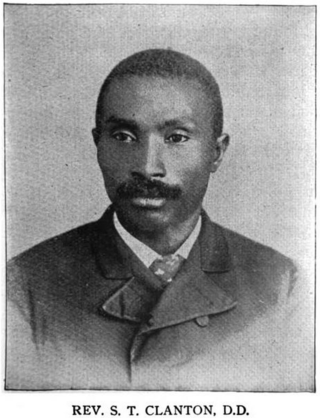
Solomon T. Clanton was a leader in the Baptist Church. He was educated in New Orleans and Chicago and became the first black graduate of the theological department at the Baptist Union Theological Seminary at Morgan Park, Chicago, Illinois, associated with the University of Chicago. He spent his career as an educator and leader in the Baptist Church. He served as a professor at Leland University, Alabama A&M University, and Selma University, and before his death as assistant librarian at the University of Chicago. He was acting president for a short time at Alabama A&M and was dean of the theological department at Selma University. During his career, he was also an educator in high schools and Sunday schools.
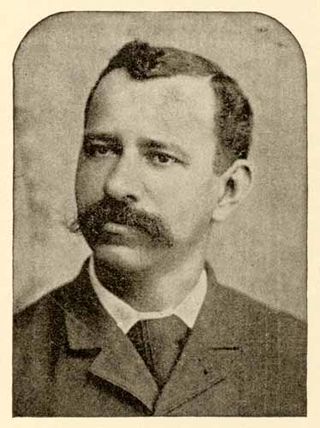
Charles L. Purce was an educator in Louisville, Kentucky, and Selma, Alabama. He was a leader in the Baptist church and president of Selma University and Simmons College of Kentucky, both Baptist institutions.
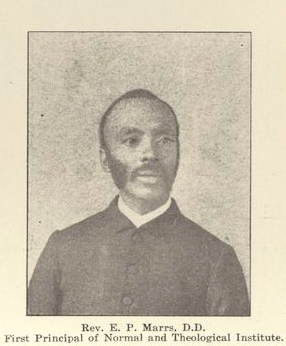
Elijah P. Marrs was a minister and educator in Louisville, Kentucky. He was a sergeant in the 12th Regiment Heavy Artillery U.S. Colored Troops during the American Civil War (1861-1865). After the war he taught in various schools and helped organize Loyal Leagues to defend blacks from attacks by the Ku Klux Klan. Together with his brother, Henry, he helped found what became Simmons College of Kentucky in Louisville in 1879.

William Henry Steward was a civil rights activist from Louisville, Kentucky. In February 1876, he was appointed the first black letter carrier in Kentucky. He was the leading layman of the General Association of Negro Baptists in Kentucky and played a key role in the founding of Simmons College of Kentucky by the group in 1879. He continued to play an important role in the college during his life. He was also co-founder of the American Baptist, a journal associated with the group, and Steward went on to be the journal's editor. He was a leader in Louisville civic and public life, and played a role in extending educational opportunities in the city to black children. In 1897, his political associations led to his appointment as judge of registration and election for the Fifteenth Precinct of the Ninth Ward, overseeing voter registration for the election. This was the first appointment of an African American to such a position in Kentucky. He was elected president of the Afro-American Press Association in the 1890s He was a close associate of Booker T. Washington, and in the late 1890s and early 1900s, Steward was a prominent member of the National Afro-American Council, which was dominated by Washington. He was president of the council from 1904 to 1905. He was a lifelong opponent of segregation and was frequently involved in anti-Jim Crow law activities. In 1914 he helped found a Louisville branch of the National Association for the Advancement of Colored People (NAACP), which he left in 1920 to become a key player in the Commission on Interracial Cooperation (CIC). He was also a prominent freemason and twice elected Worshipful Master of the Grand Lodge of Kentucky.
Bartlett Taylor was an African Methodist Episcopal Church minister in Louisville, Kentucky. He purchased his freedom from slavery in 1840 and became missionary for the states of Kentucky and Tennessee after the American Civil War (1861-1865), in which position he founded many churches.
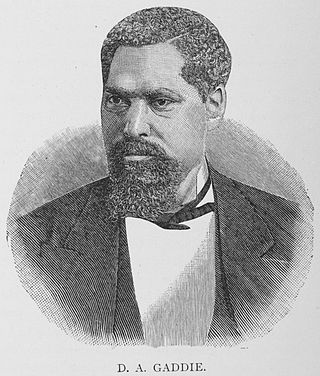
Daniel Abraham Gaddie was a Baptist preacher in Louisville, Kentucky. He was known for his leadership in state and national Baptist organizations.

Jesse Freeman Boulden was a Baptist pastor and politician in Chicago and Mississippi. He founded churches including Olivet Baptist Church in Chicago. He served in the Mississippi House of Representatives during the Reconstruction Era. He also helped manage the Senate campaigns of Hiram Rhodes Revels and Blanche Kelso Bruce.

William T. Dixon was an educator and Baptist minister in Brooklyn, New York. He was a founder of the New England Baptist Association. Dixon was a member of Brooklyn's black elite and was listed by the Brooklyn Daily Eagle as a member of Brooklyn's "Colored 400" in 1892.

MatthewCampbell, or Madison Campbell, was a Baptist preacher in Richmond, Kentucky. He was a local religious and political leader and helped organize a number of churches.

Charles Henry Parrish was a minister and educator in Lexington and Louisville, Kentucky. He was the pastor at Calvary Baptist Church in Louisville from 1886 until his death in 1931. He was a professor and officer at Simmons College, and then served as the president of the Eckstein Institute from 1890 to 1912 and then of Simmons College from 1918 to 1931. His wife, Mary Virginia Cook Parrish and son, Charles H. Parrish Jr., were also noted educators.

Cyrus Field Adams, was an American civil rights activist, writer, teacher, newspaper manager, and businessman.


















